MRI findings linked to cognitive issues in patients with long COVID 2 years post-infection
Health Imaging
SEPTEMBER 16, 2024
The CDC estimates that just under 7% of adults in the United States continue to struggle with symptoms of long COVID.

Health Imaging
SEPTEMBER 16, 2024
The CDC estimates that just under 7% of adults in the United States continue to struggle with symptoms of long COVID.

Radiology Business
SEPTEMBER 18, 2024
The software could opportunistically screen patients at a smaller cost than other interventions, given it automatically operates "in the background" on radiographs performed for other reasons.
This site is protected by reCAPTCHA and the Google Privacy Policy and Terms of Service apply.

AuntMinnie
SEPTEMBER 18, 2024
German engineer and physicist Wilhelm Conrad Roentgen has come to life in an AI-generated video in which he explains why he named his 1895 discovery “x-rays.” The clip, published on Vimeo and made available in a September 15 article in Cureus , illustrates how AI-powered multimedia technologies present a transformative opportunity in radiology, according to its creators.

UCSF Biomedical Imaging
SEPTEMBER 19, 2024
During Women in Medicine Month we’re proud to honor the clinicians, researchers, and educators who are advancing radiology. From exceptional patient care to teaching and discovery, we’re spotlighting the significant contributions of women at UCSF Radiology & Biomedical Imaging and sharing their experiences, reflections, and insights as women in medicine.
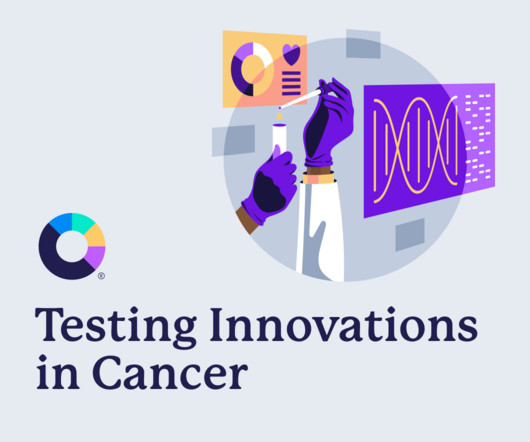
Advertisement
Amidst rising cancer prevalence and soaring costs, new cancer technologies and innovations are emerging to support the early detection, treatment, and surveillance of cancer. Read this guide to understand how to evaluate these solutions for your employees and members – and to learn more about the current state of coverage, clinical and cost effectiveness, and impact on quality and outcomes.

Health Imaging
SEPTEMBER 19, 2024
New research indicates that conservatives have larger amygdalas than their more progressive-leaning counterparts.
Diagnostic Imaging Brief brings together the best content for architecture professionals from the widest variety of industry thought leaders.

AuntMinnie
SEPTEMBER 20, 2024
Pluvicto (lutetium-177 [Lu-177] prostate-specific membrane antigen [PSMA]-617) appears to perform as effectively in prostate cancer patients in “real-world” settings as it did in clinical trials prior to its approval, according to clinicians at the Johns Hopkins Theranostics Center in Baltimore, MD. A group led by Andrei Gafita, MD, also found that an AI algorithm called SelectPSMA may help determine how patients respond to Pluvicto treatment.

Diagnostic Imaging
SEPTEMBER 16, 2024
For patients with metastatic castration-resistant prostate cancer (mCRPC) and bone metastasis, the combination of enzalutamide and Ra223 led to a median overall survival rate of 42.3 months in contrast to 35 months for enzalutamide alone, according to research presented at the 2024 European Society for Medical Oncology Congress (ESMO) in Spain.
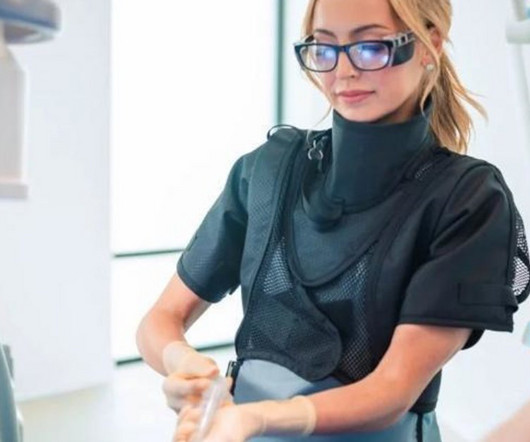
Health Imaging
SEPTEMBER 20, 2024
The vest offers extended coverage of the breast, axilla and thyroid. It is said to reduce exposure of these areas by nearly 98%.

Radiology Business
SEPTEMBER 16, 2024
Rep. Greg Murphy, MD, R-N.C., unveiled the No Surprises Enforcement Act on Sept. 13, joined by Reps. Raul Ruiz, MD, D-Calif., and John Joyce, MD, R-Penn.

Advertisement
Patient-centric scheduling can only be achieved through optimized radiology workflows, effective communications between staff and physicians, and, of course, through specialized schedulers. In this guide, we’ll take you through a step-by-step process to transform your radiology center into a high-performance hub of medical imaging.

AuntMinnie
SEPTEMBER 16, 2024
The American College of Radiology (ACR) is supporting legislation that would fine health insurance companies for failing to pay physicians within 30 days of losing in an independent dispute resolution process laid out in the No Surprises Act (NSA). Along with the American College of Emergency Physicians (ACEP) and the American Society of Anesthesiologists (ASA), the ACR lauded the bipartisan HR 9572 , which was introduced by U.S.

ScienceDaily
SEPTEMBER 18, 2024
Two new papers by a team of researchers demonstrate that evaluating microRNAs in blood can be used not only to diagnose mild cognitive impairment (MCI) but also, critically, to predict the conversion from MCI to dementia due to Alzheimer's disease. Moreover, the researchers uncovered microRNA candidate molecular biomarkers that associate with current Amyloid, Tau, and Neurodegeneration (A/T/N) Alzheimer's biomarkers.

Health Imaging
SEPTEMBER 18, 2024
The growing use of ChatGPT on residency applications is prompting concerns over how LLMs might affect the authenticity and value of personal statements in the future.
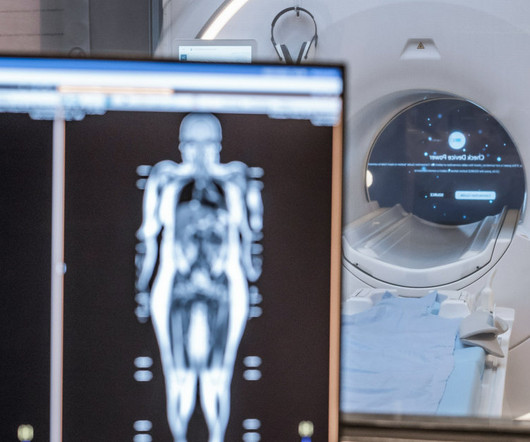
Radiology Business
SEPTEMBER 17, 2024
This care model has grown in popularity, with startups such as Prenuvo and Ezra charging $2,500 out of pocket to screen asymptomatic patients for cancer and other diseases
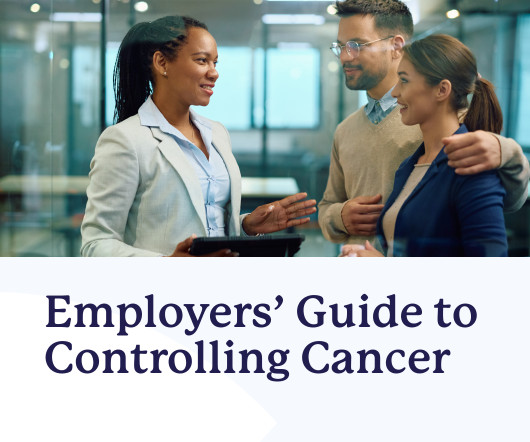
Advertisement
About 40% of us will be diagnosed with cancer in our lifetime, and patients are getting younger. At the same time, the cost of treatment continues to rise, with employers spending 8.5% more on cancer care for each employee than they did last year. The best thing employers can do for their employees and business tomorrow is to invest in cancer detection and care today.

AuntMinnie
SEPTEMBER 17, 2024
Digital breast tomosynthesis (DBT) increased breast cancer detection rates over a 10-year time period, researchers reported in a study published on September 17 in Radiology. A group led by Lianne Philpotts, MD, from Yale University in New Haven, CT, also found that DBT identifies invasive cancers with a lower rate of advanced cancers compared with digital mammography.

UCSF Biomedical Imaging
SEPTEMBER 16, 2024
As part of our celebration of Postdoc Appreciation Week, we invited two postdocs, Minhao Zhou, PhD , and Tamara Vasilkovska, MD, PhD, to answer a few questions about their work and their time at UCSF.

Health Imaging
SEPTEMBER 17, 2024
Since generative AI products first emerged, the models’ capabilities have grown by leaps and bounds. Now, they can seemingly bring renowned scientists from the past back to life.

Radiology Business
SEPTEMBER 19, 2024
The University of Toronto has standardized processes related to multidisciplinary conferences, hoping to provide relief for participating abdominal specialists.

Advertisement
Discover how Color's comprehensive care solution is revolutionizing cancer screening adherence and knowledge. Through an in-depth case study, Color's unique approach to comprehensive cancer care has shown significant benefits in increasing screening rates and enhancing patient knowledge. Participants reported a 2-3x increase in adherence to screening guidelines over just 8 weeks, with 84% of participants increasing their familiarity with timing and frequency of cancer screening.

AuntMinnie
SEPTEMBER 16, 2024
The use of iodinated contrast media (ICM) for CT scans can be optimized in radiology departments to reduce its downstream environmental impact, according to a presentation delivered on September 13 at the International Society for Computed Tomography (ISCT) meeting. In a session on sustainability in CT operations, Giuseppe Toia, MD, of the University of Wisconsin in Madison, discussed the problem and described steps departments can take to mitigate it.

ScienceDaily
SEPTEMBER 19, 2024
Researchers report significant strides in enhancing early diagnosis of bipolar disorder in adolescents. They demonstrate the efficacy of integrating multimodal MRI with behavioral assessments for greater diagnostic precision. Bipolar disorder is a severe neuropsychiatric condition that often emerges during adolescence and is characterized by extreme mood swings.
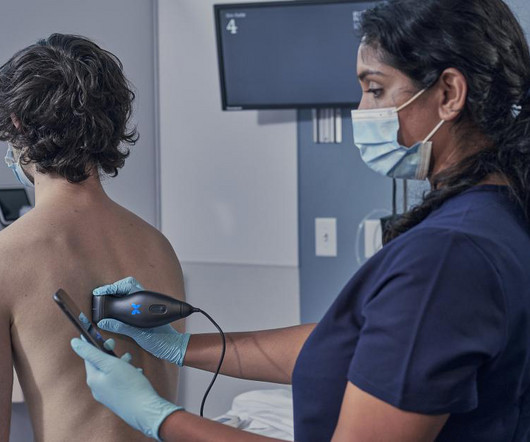
Health Imaging
SEPTEMBER 20, 2024
“Positioned as an extension of traditional examination methods, particularly appealing to the upcoming generation of clinicians, it holds promise in potentially replacing the stethoscope in various medical assessments and procedures.

Radiology Business
SEPTEMBER 17, 2024
ACR noted that Congress is returning from its August recess, with one of the “most critical” considerations pertaining to government funding for fiscal 2025.

Advertisement
Explore the latest insights from the American Cancer Society's “Cancer Statistics 2024” report, which unveils multiple alarming trends in cancer data. Cancer is on the rise among young adults, and diagnoses for 6 of the 10 most common cancers are escalating. With over 2 million new cancer cases projected in the U.S. this year, employers face increased challenges when it comes to supporting employees.

AuntMinnie
SEPTEMBER 17, 2024
AI can generate radiologic report impressions that are professionally and linguistically appropriate for a full spectrum of radiology examinations, according to a study published September 17 in Radiology. A team led by PhD candidate Lu Zhang of Shanghai Jiao Tong University in Shanghai, China, developed a large language model (LLM) that generates interpretations (“impressions”) on reports based on imaging findings and evaluated its performance in professional and linguistic dimensions.

ScienceDaily
SEPTEMBER 18, 2024
A team developed a nanoparticle technology that offers an effective solution to diagnose and treat atherosclerosis, in a non-invasive manner. Atherosclerosis is the build-up of plaque in the arteries which causes their narrowing and is a primary cause of ischemic heart disease (IHD) and ischemic stroke (IS), major contributors to deaths caused by cardiovascular diseases globally.
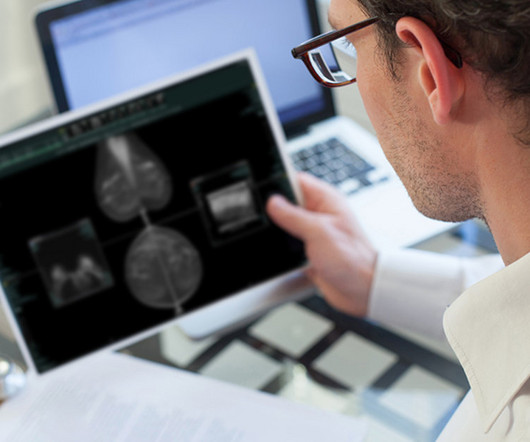
Health Imaging
SEPTEMBER 18, 2024
Viewing patients' priors consistently improves readers' performances, regardless of experience level, specialization or the volume of screening mammograms they are accustomed to reading.

Radiology Business
SEPTEMBER 16, 2024
Continued declines in reimbursement and mounting administrative burdens are combining to weigh down members of the specialty, RP wrote in recent comments.

Advertisement
As HR and Benefits leaders are in the midst of evaluating cancer care solutions and designing their requirements for vendors, it’s key to know what questions to ask to ensure the development of a truly comprehensive strategy: from prevention to diagnosis to treatment to survivorship. Getting to the right answers starts with asking the right questions: How can better access improve engagement?
Let's personalize your content